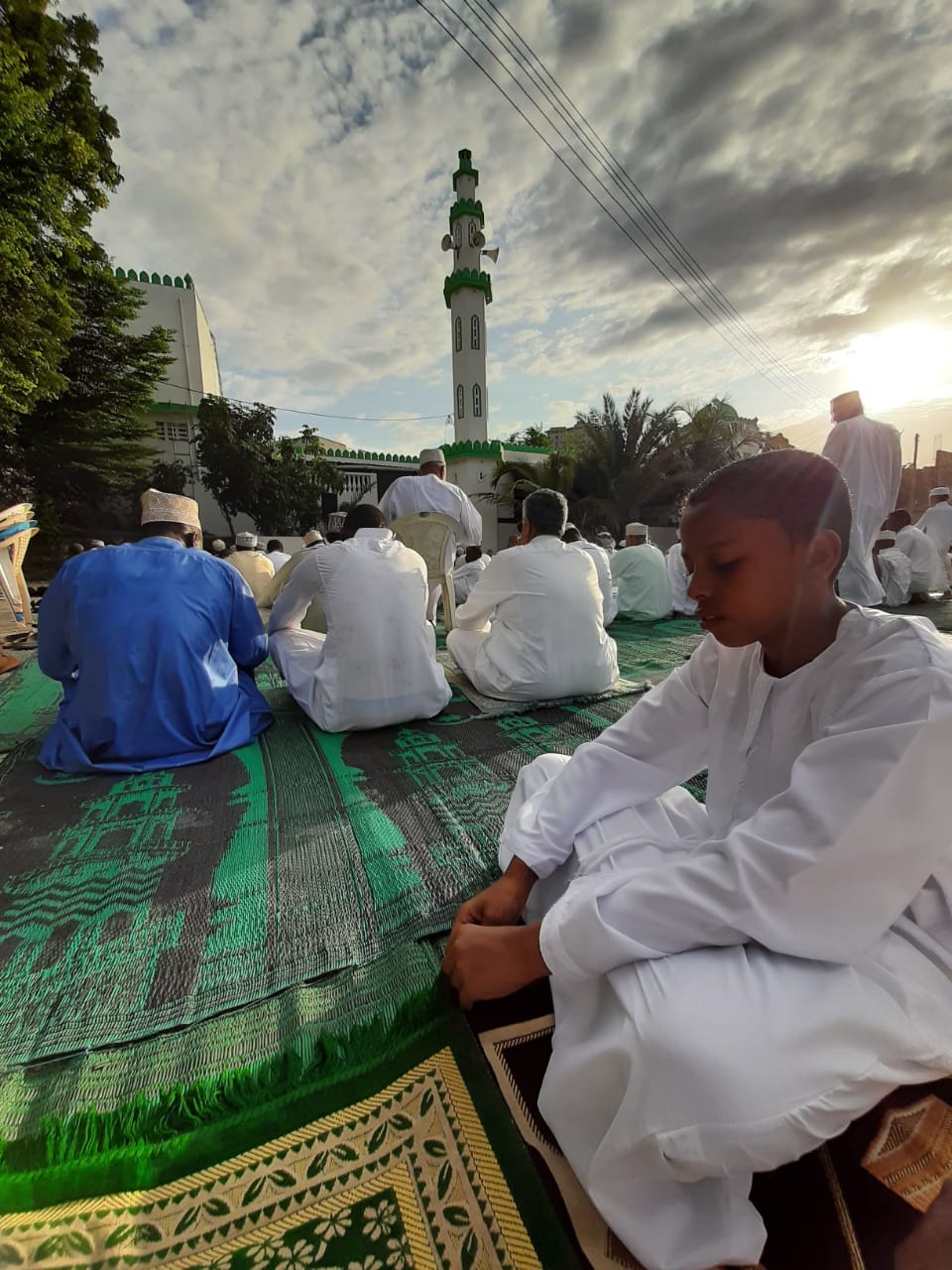You may read the third part of this article here
My very adorable boys have grown. It’s amazing watching them bloom. Don’t get me wrong, they still drive us crazy but whenever they are away, their absence is deeply felt.
My Hassun (my happy person 3) is close to four years, but now we call him Chenchen. He is the most charming of all. But he’s also got that kind of cat-ish pride, you know what I mean right? Sometimes he gives hugs and kisses and smiles abundantly, and sometimes you call him and he ignores you completely. If you keep calling his name he point blank shouts NO from wherever he is. He is only gonna love you when he feels like it. He is still my favourite though. It is an undeniable fact.
There was a time months back I went away from home for some days and every evening, I would call and the first person I would ask for is him. My aunt whom I was staying with once asked me, ‘You’re very attached to Chenchen yeah?’ I laughed and asked why. She said she rarely hears me ask about the others 😀
Sometimes I feel bad and say to myself that I don’t want the others to feel discriminated. But what is love? I cannot hide it. I get to the door of home and he is the first name I call out. I bring them sweets, and Chenchen is the first I give it to. Random times I would remember him and miss him and just say his name. SMH, I know, it’s an obsession at this point.
I noticed that whenever I left him home, he would avoid eye contact once I’m back. He would refuse to acknowledge my existence entirely. And any attempt to hug him or kiss him will be followed by a big NO. But then slooowwwllly, and with much persuasion, he starts smiling shyly then disappears, then at another moment he lets me carry him but then throw a tantrum to be left alone, then at another moment he comes to lay on my lap or if he cries, he comes to hug me. It’s like the perfect illustration of cognitive dissonance (a mental conflict that occurs when your beliefs don’t line up with your actions). It seems like he feels hurt and angry and betrayed for leaving without him, but then he is kinda happy to see you but doesn’t exactly want it to be noticed.
He is the absolute cutest. Well apart from the fact that he STILL refuses to call me by my name and calls me by my younger sister’s name instead. I think this move is very intentional; like he’s teasing me. You can’t tell me he knows how to say EXCAVATOR and MONSTER TRUCK and knows how to call our neighbour ABDULMALIK, but can’t say my NICKNAME *rolling eyes*. Sometimes, when he is repeatedly begging me for something, chorusing my sister’s name, he has a mouth slip and says Luby. It’s like once in a blue moon typa thing. When he says my name, even if I didn’t want to do whatever he was requesting for, my heart just melts and I do it anyway. I told my sister in shaa Allah I’ll take him with me once I have my own home but my mum stopped me in my tracks with ‘Tafuta wako!’ 😀
Chenchen’s personality is more visible now. He is very much a loner. He doesn’t mind playing alone for hours on end. You’d see him silently playing with his favourite car toys or chorusing the car noises as he hears them on TV, with intervals of high and low intonations. He is very energetic and loooveees exploring. If you take him to an open field, khalas, that’s heaven for him. He can run back and forth and back and forth like he is training for a marathon. If you leave him outside alone he will most definitely go further away. Sand and water are his favourite things to play with. He can stay the whole day playing in a pile of sand and a small cup, literally bathing himself in it. The same with water. He could cry if you remove him from the bathroom before he has enough play with the water.
Chenchen can get really silent sometimes, and sometimes he is jumping up and down and running wild. Also, if you’re wondering, yes, he still throws stuff outside the window :/
Anywayssss, Halimi (my happy person 2) is soooo compassionate and kind and sensitive and cheerful, and I really love that about him. He’s the kind to randomly give you a hug or tell you ‘I love you’ or kiss you. He’s just the sweetest and most loving kid, Allahumma Bareek! He’s the one who always wants to give his mother company while she works. When he comes back from school, he is always so excited to see any of us. He’d shout any of our names with so much joy, you’d think he hadn’t seen us the same morning. There was a time they all went to my brother’s house for a holiday. After some days, the rest of the family joined them there. When Halimi saw us approaching us, he ran towards us shouting, ‘UH! MY PEOPLE! MY PEOPLE ARE HERE!’ I could cry talking about how warm and beautiful his soul is. Whenever I see how he gets super enthusiastic about the smallest things, in my heart I pray that Allah protects his soul and that this world never takes away this gift from him.
Last Ramadhan we taught them the concept of dua and writing dua lists and so Halimi and Hassan (Happy person 1) started creating their own duas and sometimes writing letters to Allah which mostly consisted requests for toys and toys and more toys. Several months later, Halimi came to me one night, requesting for a paper and pen. He was visibly sleepy but he insisted he wanted to draw. So I gave him what he needed and to my pleasant surprise, he had drawn a toy phone and police car then wrote a letter to Allah requesting for the two. My heart melted. I did not expect that months later, he’d still remember that and even though he was pressed with sleep, he still wanted to communicate with Allah *happy teary eyes*. May Allah guide them and protect them and make them among His most beloved servants, ameen.
Halimi is also the reader and creative in the house, which of course makes me love him more. Whenever he comes across a book he’ll be curious and try reading it even when it is beyond his age. He also loves drawing and colouring and mashallah he is good at it too! He’s such a sensitive boy so you CANNOT make him cry. Because he doesn’t simply cry. HE WAILS! The entire neighbourhood will hear his screams and assume the worst.
The two older boys are at the curiosity phase where they ask very many simple yet difficult questions. Hassan especially is very inquisitive. Both he and Halimi would out of the blue ask, ‘When are we going to Allah? Where is Allah? Does Allah pray? Is Allah boy or girl? Where is Jannah? Can we go to Jannah then we come back?’ Just this month, as he (Hassan) was turning 8, he asked his grandmother, ‘How many years remaining then we go to Jannah?’ Hahaha. Another time he randomly said he doesn’t want to go to hellfire. Another time he said he doesn’t want to go to shaytan. There was a time he was so tired and sleepy but he hadn’t prayed ishaa yet. So he started getting teary saying he doesn’t want to go to hellfire because he has been taught after 7 years a child should pray all prayers miskeen. He takes his prayers very seriously and we love that for him 😀
They recently started being given chances at the masjid to do iqamah and they are always so excited about it, especially Halimi. They would race to the masjid and whoever gets there first does the iqamah, but Halimi would cry whenever defeated and Hassan, being the responsible, thoughtful elder brother, let’s him do it any way 😀
Hassan still loves maths and he is your typical first born. Sharp, caring, responsible and very thoughtful of his younger siblings. He’s also become a master in solving rubric cube after many many attempts. At the beginning, because he couldn’t solve it, he used to remove all the individual cubes then return them one by one in the order of the colours just so that he can proudly say he did it 😀 Thereafter, my sister started watching YouTube tutorials with him until he learnt how to do it better than my sister! He’s our little genius, Allahumma bareek.
But nooow, we have a new squad member who started living with us. My niece Mima is very pretty mashallah and very naughty. She is very sweet and loving and affectionate. You should hear her talk about her mummy and daddy, like the proudest child in the world. She is especially very very attached to her father. You should see her excitement when she sees him, and how much she cries when he leaves her behind, ‘DADDDYYYYY! I WANT MY DADDDYYY!’.
Mima loves freely and deeply and never shies off from expressing her emotions. When introducing herself she says ‘Mima pwinshesh’ while smiling cutely. Her smile can melt your heart but you cannot let that deceive you! 😀 Mima is like Masha from ‘Masha and the Bear’. Her teachers cannot tame her either and any attempt to do so brings out the sensitive, cry baby in her. Talk of ‘terrible twos’ extending to three, four years now 😀
Granted, she began school a few months before she officially turned four, but to date, both her school and madrasa teachers always have a lot to say about her 😀 We understand though; she’s young. As they say, ‘Akikua ataacha’ (or so we hope! 😀 )
Halimi is her best friend. Those two, are partners in crime. They’ll intentionally do what you specifically asked them not to, just so they can push your buttons while they have smug smiles on their faces. Kids really know how to get on your nerves and drive you crazy, but when they are absent, you still miss them somehow. Her and Chenchen on the other hand, are frenemies. One minute (most of the times) they are fighting over toys or food, the next minute Chenchen is shouting, ‘Let’s go Mima. Let’s play!’ or hanging on the grills of the window (even after you’ve told them 648765487 times not to do so!)
Regardless of all that, Mima loves to help around and to be involved. She’ll throw the pillows down with the boys but she doesn’t mind returning them at their rightful place. When the older boys are sent to the shop, she wants to join too. Plus she’s the only one among them who stays with their toys intact for more than two days (boys will always be boys!)
I’m writing this because I miss them all so much. They’ve all gone for holidays to their families and the house feels empty, and kinda boring (except for the part where we can sleep with no disturbances 😀 ). I’m already here nagging their mother to start preparing for January school opening like I am mother hen. But then it is no secret that I am THAT mother (in shaa Allah). The one to prepare breakfast items the night before so there is no morning rush 😀 Spoiler Alert: There’s ALWAYS morning chaos! SMH 😀
Anyways, may Allah protect my babies and make them kind, brilliant and pious Ya Rab. Please do pray for their guidance 🙂
*
P.S: Don’t forget to pray for Palestine, Sudan, Lebanon, Congo and all the countries undergoing oppression.
Thank you for reading! Kindly do subscribe below to keep up with my latest blogs 🙂















